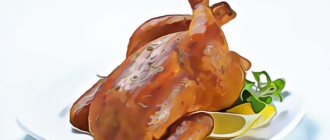Women who do not suffer from poor appetite and remain slim are popularly known as witches. Men who are distinguished by the same feature can probably also be suspected of something similar. But if we talk without jokes, we must admit that, as a rule, these people should not be envied, because such thinness can be a sign of illness. Our expert is an endocrinologist-nutritionist at the network of reproductive and genetics centers Natalya Kovaleva.
Many are sure that eternally slender people owe their impeccable shape to some special genes that gave them such a constitution along with the lifelong right to gorge themselves on sweets and fatty foods. Another common opinion is that it’s all about some incredibly fast metabolism of such people. But in fact, all this is mostly fiction. The situation when a person eats and does not gain weight, as a rule, has only two types of reasons. Some are physiological, others are pathological.
Article on the topic Will the thin man die? Extra pounds are healthier than being thin
The inexorable law of conservation of energy
In the first case, being slim with a good appetite will be associated with the excellent state of the intestinal microbiota, which greatly influences many processes in the body (and maintaining optimal weight in particular), as well as an active lifestyle and, possibly, a young age. Unfortunately, due to ecology and the inexorable passage of time, only a few manage to preserve such a natural feature for life. Therefore, those girls with an excellent appetite, whose slimness you envied in your youth, in 20 years may well become ladies with curvy figures, unless they learn to control their appetite and start playing sports.
But it also happens that a person is simply naturally thin. This is his constitution. At the same time, the law of conservation of energy still works in his case. That is, the amount of energy entering the body is equal to the amount of energy expended. Usually thin people are still small people, but they are quite active. There are no thin people among gluttons and couch potatoes.
Is thinness a problem? Why weight loss is dangerous Read more
Why don't thin people get fat?
Share:
How do some people manage to stay slim in our increasingly fat world without putting any effort into it, while others are forced to limit themselves in food and count calories, fighting with extra pounds?
Many perceive them as an unattainable standard, as lucky ones. Naturally slender people were indeed lucky to be born exactly like this in this era. In ancient times, those who were genetically predisposed to accumulating fat survived: in the event of an unsuccessful hunt or crop failure, the accumulated fat helped to hold out until better times. And now the chance to be healthier and live longer is just for those whose bodies actively resist extra pounds. But how does he do it?
Most people, both slim and plump, have practically no knowledge on this issue. Namely, knowledge can protect you from superficial judgments, mistakes, delusions, disappointments, the pursuit of the impossible, as well as from biased attitudes towards those who are different from you.
Since obesity is a risk factor for many chronic diseases, funds are allocated for its study, research is conducted and scientific papers are written. Every year we have more and more information about the causes of excess weight, and “slow metabolism” is just one of them. And there is very little information about naturally slender people - scientists do not pay much attention to them.
Are these lucky people really able to eat anything in any quantity and not gain weight even without exercising? What happens if you put them in conditions where they have to constantly overeat, that is, systematically consume more calories than they can burn? Will they stay slim? How can I check this? How to feed them?
This is covered in the BBC documentary Why Are Thin People Not Fat? , which I recommend for viewing to everyone who is interested in this topic.
The film begins with a story about an experiment in a Vermont prison (USA), in 1967, the purpose of which was to study the body's reaction to constant overeating.
Young prisoners (ages 20 to 30), healthy, naturally slim, with no family history of obesity or diabetes, were promised early release if they served science. (The ethics of the experiment are not discussed in the film.)
Over the course of three months, participants were required to eat much more than usual, so much so that by the end of the experiment, each of them had increased their weight by 25%. For example, if the prisoner weighed 60 kg. at the beginning of the experiment, then at the end it should have weighed 75 kg. To do this, each of them was given an appropriate menu (from 5,000 to 10,000 calories per day) and recommended to avoid physical activity.
During the experiment, scientists encountered an unexpected problem. Some participants did not gain the expected amount of weight, despite eating 10,000 calories a day and moving very little. Two were stuck at 21%, one participant only gained 18%. Scientists have concluded that for some, obesity is almost impossible - their body somehow resists the accumulation of fat. But which one exactly? The results of this experiment have been the subject of many years of debate and discussion among physicians.
***
Recently, the same experiment was repeated with student volunteers, naturally thin, even lean, young people. Some participants were proud that they could eat whatever they wanted in any quantity and not gain an ounce of excess weight. Others have simply never thought about how much they eat or how many calories they need to maintain their current weight. Why think about it if everything is fine?
For four weeks, the students ate twice as much as usual while avoiding physical activity. They wore pedometers and were instructed to walk no more than 5,000 steps per day (about three kilometers). That is, the ideal regime for gaining excess weight.
Of course, eating twice as much as usual is not so easy. To make the task easier for students, their menu included soft, almost chewless, high-calorie foods: donuts and deep-fried potatoes, ice cream, chocolates, sweet buns and pretzels, cakes, pizza with cheese and mayonnaise, puddings, cheesecakes, sweet drinks, milkshakes with syrup and whipped cream. Chocolate, according to the participants, “went in” the easiest. Indeed, chocolate is a nutrient-dense food: in a small volume - a large number of calories - a person can eat a chocolate bar in one sitting without feeling full, then eat another one, and another one.
This is a still from the movie

In this mode, theoretically, the weight of students should have increased by 15% in four weeks. or, on average, 10 kg. Special equipment was used to determine body composition (percentage of fat and muscle).
Participants reported that after a large feast they fell into a drowsy state - they wanted to lie down, and also complained of a constant unpleasant sweet-fatty taste in their mouth.
During the experiment (4 weeks), everyone gained weight, even the student, who was prouder than others of never gaining weight. Participants looked in amazement at the folds of fat on previously skinny sides and sunken bellies.
In general, the results were similar to the results of the experiment in the Vermont prison: despite the same conditions, the students gained different amounts of kilograms. For example, one student's weight increased by 9%, while another only increased by 5%. How did the participants manage to burn off the extra calories?
Scientists explained that in such conditions, some people, unnoticed by themselves, begin to make “extra” movements: twitching their shoulders, swinging their legs, drumming their fingers on the surface of the table - this way they spend some calories. This property of the body to protect itself from extra pounds is genetically predetermined. And those who do not have such genes usually remain in a motionless, half-asleep state after each heavy meal.
The most intriguing result was the following: one student’s weight increased by 8%, but the young man’s appearance did not change - no fat folds on his sides and stomach. At the same time, his basal metabolism increased by 30%. Measurements showed that the percentage of fat in his body increased by only 2%. What about the rest? It seems incredible, but his muscle mass increased from overeating. This is also a genetic factor. Some people gain fat from cakes and chocolates, while others become more muscular from the same thing, without even exercising. But no one promised that life would be fair.
Another interesting result. Two participants were physically unable to eat the prescribed amount of calories: the food literally came back. This is also a genetic factor. The body protects itself from extra pounds using nerve signals - they block attempts to fill the stomach. (Personally, I know people who physically cannot stuff an extra piece into themselves. It is not surprising that they do not understand how others manage to gain weight).
Both experiments were time limited. It can be assumed that if slender people were overfed not for a month or three, but for a year or even several years, then the excess food would be able to break the body’s natural defenses and they could eventually get fat.
So, naturally thin people intuitively avoid excess food, and if they do overeat, they begin to move more. For some, muscle mass increases, which means metabolism increases. And the rest have to protect themselves from excess weight. Let's wish them good luck.
Evgenia Kobylyatskaya, licensed nutritionist (USA)
Original post on my blog
Human food
Are you sick for an hour?
But in the second case, the cause of thinness with normal (and sometimes increased) appetite may be pathological conditions. By the way, it is not for nothing that in Rus' the word “thin” had a negative connotation and meant “bad”, “sick”. Weight loss can be a symptom of many diseases. Among them:
- thyrotoxicosis (increased production of thyroid hormones);
- diabetes mellitus type I;
- a significant deficiency of vitamins associated with their failure to absorb due to gastrointestinal diseases (gastritis, for example) or celiac disease;
- tuberculosis and other infectious diseases;
- anorexia, bulimia, raw food diet;
- helminthiasis (worms);
- alcoholism and drug addiction;
- mental illness;
- Crohn's disease and ulcerative colitis (inflammatory bowel diseases);
- oncological diseases.
It is especially dangerous if severe weight loss occurred suddenly and without obvious reasons, as well as if there are some other symptoms (fever, constipation or diarrhea, loss of strength, excessive thirst, etc.).

Thinness is a diagnosis! Why is anorexia nervosa dangerous? Read more
Dangerously thin
Everyone has their own idea of thinness. Doctors can diagnose “underweight” if the BMI is less than 8.5 kg/m2. Oddly enough, underweight people suffer from their imperfections no less than overweight people suffer from excess weight. And just as some people dream of losing weight, others want to gain weight. And this task, by the way, is sometimes much more difficult to solve than losing weight.
By the way, excessive thinness is no less harmful to health than excess weight. The immune system suffers from this, internal organs drop, hormonal levels and the menstrual cycle may be disrupted, hypotension occurs, etc. In the future, excessively thin people have a high risk of dementia and premature death.
Question answer
What is the connection between weight loss and mental health? But, before you start gaining the missing kilograms, you need to undergo a comprehensive medical examination to rule out diseases, including pathology of the endocrine system. As for endocrinology, this is primarily thyrotoxicosis, diabetes mellitus or a severe deficiency of any vitamins.
If nothing has been confirmed by the endocrinologist and other doctors, you should understand the aesthetics of nutrition. Most often, the cause of painful thinness is a voluntary refusal to eat. Sometimes the patient himself may not even realize this. Anorexia can start unnoticed, for example, due to the fact that someone once called a woman too fat. But she believed and remembered it. Anorexia can be psychogenic (and such cases are common), and this pathology requires very careful, complex and delicate treatment.

Singer Sogdiana: “I always wanted to get better...” Read more
Why some people eat whatever they want and don’t get fat: facts and hypotheses
The reasons for this phenomenon can be psychological and physiological. If it is impossible to influence the genes and location of fat cell receptors, then lifestyle and attitude depend only on the person himself.
Problems with hormones
In obese people, the sensitivity of dopamine receptors, which are responsible for receiving pleasure, is reduced. This explains the need for increased amounts of pleasure hormones endorphins, serotonin and dopamine. An easy way to make up for their deficiency is to eat. As a result, people unbeknownst to themselves swallow thousands of extra kilocalories, like smokers who constantly smoke. Then comes genuine surprise at how the numbers on the scales have changed.
The way out of the situation is simple - look for other sources of joy that are not related to food. This could be communication with interesting people, hobbies, creativity, and even physical activity. During training, not only fat deposits are burned, a beautiful relief is formed, but also a large amount of endorphins are released into the blood. A person feels a surge of happiness and vigor, and the need for cake disappears.
The reason for the tendency to be overweight is often reduced sensitivity to leptin, a hormone that controls hunger and satiety. This is not an endocrine pathology, but only a feature of the body. Knowing about it, a person should not trust the feeling of hunger. He needs to form the habit of eating moderate meals at regular intervals. This will make it easier to control your weight. If you snack every time you feel a deceptive feeling of emptiness in your stomach, excess weight will not be long in coming.
There is an interesting study by British scientists who discovered the Atkins gene. Under its influence, saliva is actively released, breaking down carbohydrates. Most people have 2-3 copies of this gene in their bodies. Only in some cases their number reaches 20. These lucky people with a high level of the Atkins gene will not gain excess weight, no matter how much they eat.
Scientists have been able to identify another factor that activates the activity of obesity genes. It turned out that good nutrition of the mother during pregnancy and the high weight of the newborn reduce the likelihood that the child will begin to gain weight in the future.
Features of muscles
One likely explanation for why some people eat whatever they want and don't gain weight, while others starve and gain weight, is muscle fiber ratio. Fast twitchers require more energy, slow twitchers require less. Slender people naturally have a predominance of fast-twitch muscle fibers. Others can develop them with exercises on the horizontal bar, sprinting, and weight lifting. Long marathons provoke the growth of “slow” fibers, so they are not suitable for maintaining slimness.
Distribution of fat receptors
There are two types of receptors on fat cells. The former are responsible for the accumulation of fats, the latter for their breakdown. There are people in whom these receptors are distributed evenly throughout the adipose tissue of the body. Even if such a person gains 5 kg, it will not be noticeable to those around him. The gained kilos will simply spread throughout the body without causing fat deposits in certain areas.
Most people have distinct areas where fat storage receptors predominate. For women it is the hips, chest, buttocks, and for men it is the abdomen. In such cases, fat leaves one place and accumulates in another. The face suffers the most. If it loses weight, wrinkles appear.
Eating behavior
Slender people eat only when they are hungry. They do not follow strict diets and do not deny themselves sweets and other favorite foods. Such people have learned to listen to their body and know when it needs refueling.
Overweight people have different eating behavior. Many of them are accustomed to eating with company, without even experiencing obvious hunger. They also try to follow diets, and before preparing for them, there is a ritual of saying goodbye to their favorite food, when a person wants to get enough of cakes for future use. Slim people do not accept restrictions. They eat only a couple of pieces of chocolate at a time, and leave the rest for later, because for them there are no prohibitions.
Sports activities
Slim people often lead active lifestyles. In winter they go snowboarding and skiing, in summer they go cycling. They go hiking and jog in the morning. During such activities, a lot of energy is consumed. Calories received from food are actively burned, which is why a person does not gain weight. Sports activities also stimulate the production of the happiness hormone, which you don’t have to look for in food.
Accelerated metabolism
Not long ago, doctors changed their minds about why some people eat whatever they want and don’t gain weight, while others quickly gain weight. For a long time they believed that a person gets better from laziness. Allegedly, a sedentary lifestyle and frequent snacking slow down your metabolism, resulting in more fat being deposited on your sides. It has now become known that overweight people have a less active energy metabolism than thin people.
Metabolism is a complex process of chemical transformation of substances that provide the body with energy needs for development and growth. If the metabolism is fast, then the risk of fat and carbohydrate deposition tends to zero, even if a person eats heavily at night.
Accelerated metabolism is inherited, but there are some foods that act as good catalysts. These include spicy foods popular in Asia, where obesity rates remain low.
The risk of metabolic disorders increases during adolescence. Young boys and girls are always in a hurry to get somewhere, so they eat street fast food, buns, and wash it all down with soda. The result is metabolic syndrome, or a metabolic disorder.
Video: How to eat and not get fat?
https://youtu.be/zrUClJwcoWg
How to get better
Many people think that in order to gain weight, you need to do the opposite: eat more and move less. But it turns out that this is not so. To gain weight, you should not increase your caloric intake by 2-3 times. It is necessary to increase it slightly and gradually, by 15-20%, no more. And the emphasis should be placed not on carbohydrates and fats, but on proteins. Therefore, the diet must be enriched with high-quality protein: eggs, cottage cheese, meat, poultry, fish. Fats should be predominantly polyunsaturated (omega-3, lecithin). You need to eat small meals, often and little by little. Drink at least 1.5 liters per day. It is very important to get good sleep. As for a passive lifestyle, we must decisively abandon it, because muscle atrophy occurs faster this way. Therefore, sport is necessary not only for fat people, but also for thin people. In other words, to everyone and everyone. It is not cardio training that works better, but strength sports that help gain muscle mass.










